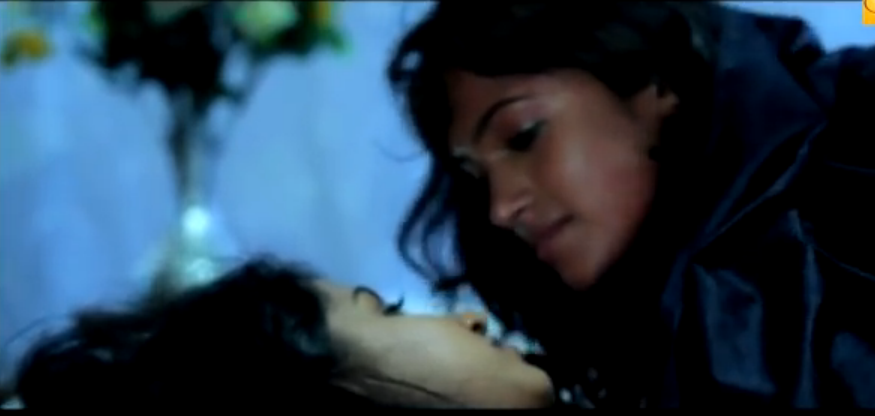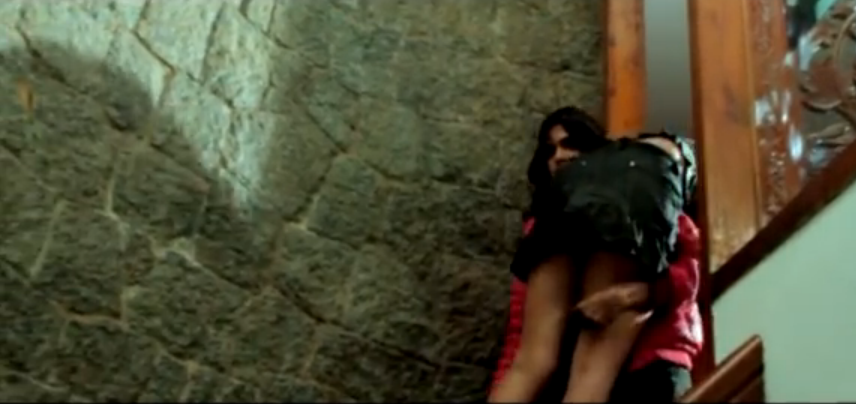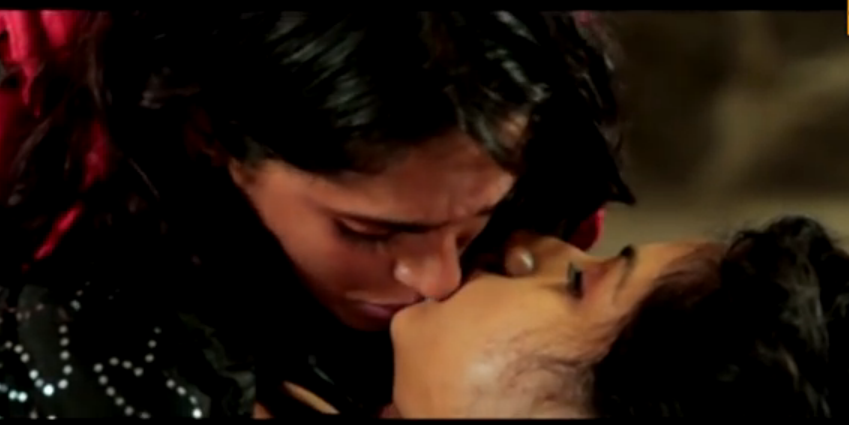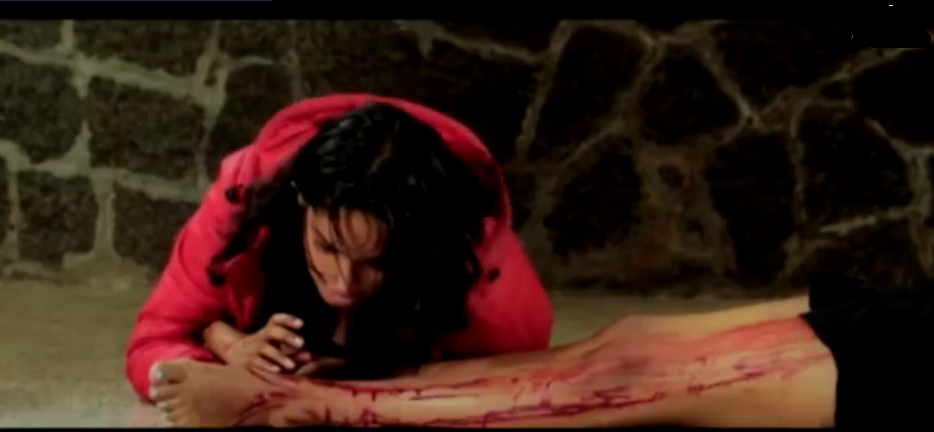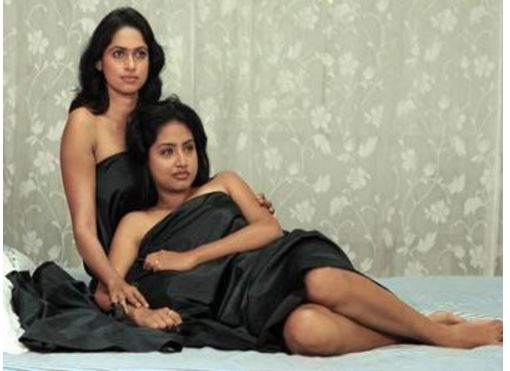Lesbian themes in Malayalam cinema
Readers can send additional information, corrections, photographs and even
complete articles on new subjects to our Facebook page Indpaedia.com. If found suitable, this additional information will be incorporated into the Indpaedia article (with an acknowledgement) and new entries will be created (also with due acknowledgement). Readers will be able to edit existing articles and post new articles directly on Indpaedia.com only after its formal launch. |
Contents |
The sources of this article include
Asha Prakash, The Times of India
Randu Penkuttikal (1978)
Director Mohan. Based on VT Nanda Kumar‘s eponymous 1974 novel.
Randu Penkuttikal was arguably the first Indian film about lesbian love, preceding Fire (Hindi-Urdu/ 1998) by twenty years. (The 1982 Marathi film 'Umbartha' (Subah in Hindi-Urdu) was the next to allude to a lesbian relationship.)
In Randu Penkuttikal, Kokila (Shobha), a high-school senior is almost insanely and possessively in love with her beautiful junior Girija (Anupama Mohan). Kokila plies Girija with presents and makes it clear that she wants a lesbian relationship. Girija on the other hand is besotted by a handsome trainee photographer, who has sex with her and vanishes. She marries a teacher.
The possessive lesbian of the film wants to cling to her female lover, so she spreads rumours about her to make sure men stay away.
Deshadanakkili Karayaarilla (1986)
Dir. Padmarajan clearly hints at a lesbian relationship between the Shari and Karthika characters. However, people were bashful in 1986, so things were not spelt out. As in Randu Penkuttikal, when one of the girls finds herself a man, the other girl, who wants to cling to her girlfriend, gets into a bitter, painful and tragic emotional fit.
The Journey/ Sanchaaram (2004)
The Journey/ Sancharram (സഞ്ചാരം; written, directed and produced by Ligy J. Pullappally): MovieMail writes: Award-winning Indian drama telling the [true] story of two young women from an idyllic rural village in Kerala: the studious and reserved Kiran and her lifelong best friend, the playful mischief-maker Delilah. Kiran expresses her love through mutual friend and neighbour Rajan by helping him compose passionate, poetic love letters to Delilah in his name. Delilah, however, suspects that Rajan might not be the author, and soon unearths her friend's secret. Kiran fears that this will end their friendship, but Delilah thrills her by confessing similar feelings. They embark upon a beautiful romance that proves an evolution for both women but scandal sweeps the town when their secret is discovered by Rajan. Delilah's mortified mother confronts her and demands that the relationship end. Worse still, to save her reputation and the family name, an arranged marriage is planned.
This was a commercial film, and had the feel of one. Delilah, dressed in bridal white, has second thoughts at the altar, as church bells ring. She rushes to the village square and, melodramatically, hysterically cries put, 'Kirrrran!'
Cut to the dignified, calm, composed (and beautiful) Kiran who majestically stands atop a rock that looks over a waterfall, as she presides over one of Kerala's fabled landscapes--and contemplates what to do. This is a lesbian version of the bride who elopes from the altar theme.
Director Ligy J. Pullappally had earlier made Uli, a short film on the same theme.
Awards:
Best Film at the 40th Chicago International Film Festival,
Special Jury Prize at the Kerala State Film Awards,
the Special Jury Prize from the John Abraham Foundation
Rithu (2009)
Director: Syamaprasad
There is a fleeting hint at a same-sex relationship in the film.
Silent Valley (2012)
(Dir: Syed Usman) Cast: debutants Nidheesh and Roopasree are in the heterosexual lead. The lesbian couple is played by Rithu Mangal and Agatha Magnes.
The story: The heterosexual couple goes to a remote valley [the film was shot in scenic Wagamon and Kuttikkanam] for their honeymoon. Two young women rescue them from their isolated accommodation. However, this is a trap.
Buddy (2013)
Director Raaj Prabavathy Menon’s debut film, Buddy, was inspired by The Kids Are All Right (2010/ USA), which had been nominated for the Oscars. The film’s teenaged hero Vishnu (Mithun Murali) is not sure if his mother is Meenakshi (Asha Sarath) or Padma (Bhumika Chawla), because both brought him up.
These two intellectual women are rumoured to be lesbians and, far from getting annoyed by the rumours, they like such localised fame as comes with them. To make things more curious, the boy learns that he was born out of artificial insemination, so he sets out to look for his father…
See also
About Kerala
Indpaedia has short notes about ALL castes, sub-castes and communities of Kerala, regardless of religion, e.g. Syrian Christian, Māppilla, Nambūtiri Brāhman or Nāyar. Try the Search facility at the top right of this page, or go to the Category:Communities page. (It is not possible to give a hyperlink to the 'Category:Communities' page here. However, there is a hyperlink at the bottom of, say, the Syrian Christian, Māppilla, Nambūtiri Brāhman and Nāyar pages.)
Articles about all aspects of Kerala are being uploaded.
About cinema
Adult content in Bengali cinema Adult content in Hindi-Urdu cinema Adult content in Kannada cinema Adult content in Malayalam cinema Lesbian themes in Bengali films Lesbian themes in Hindi-Urdu films Lesbian themes in Malayalam cinema
Private lives of Indian (Mumbai) stars
See also: Malayalam cinema
Box office records of Malayalam films
Malayalam cinema: 2010 onwards
Dileep (Gopalakrishnan Pillai)
…and several other pages on Malayalam cinema.


